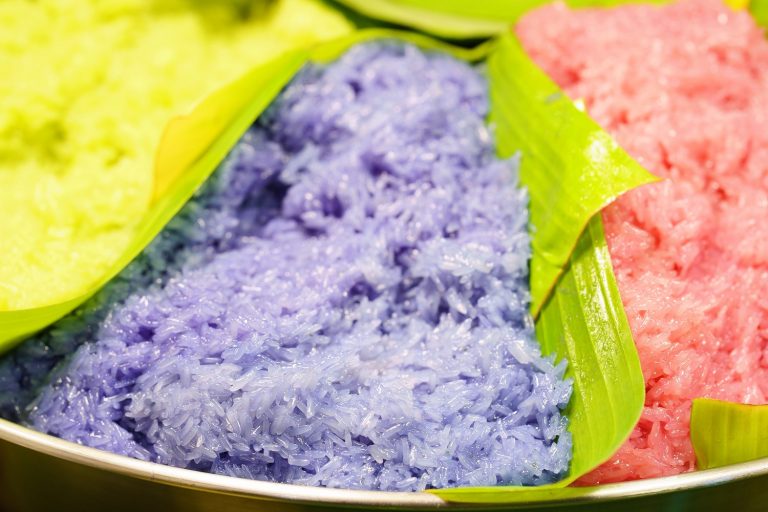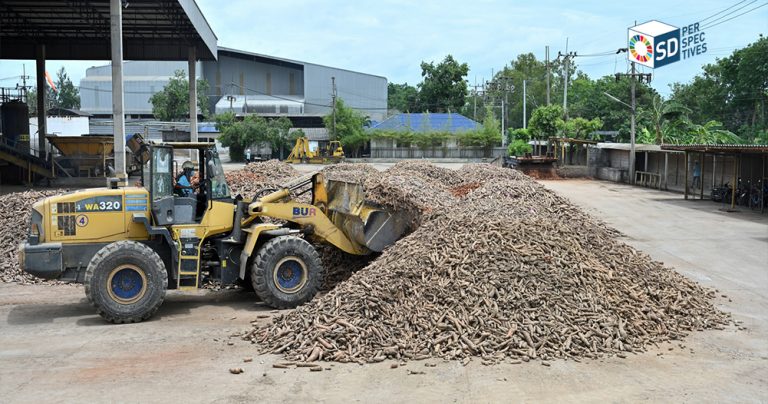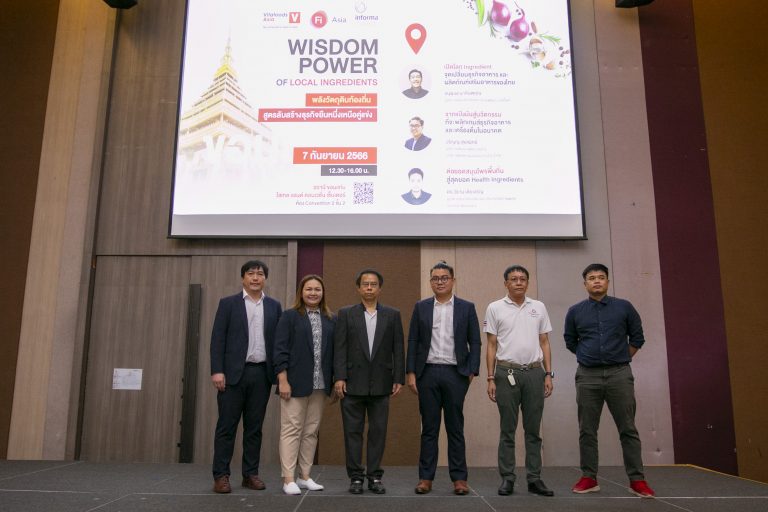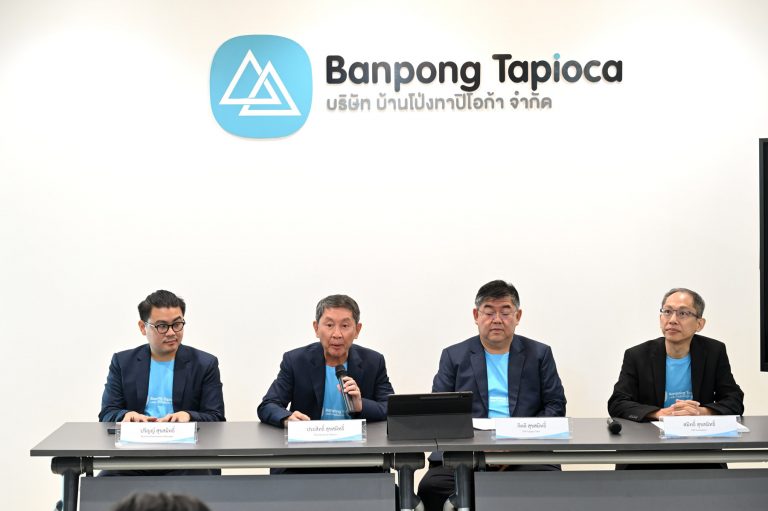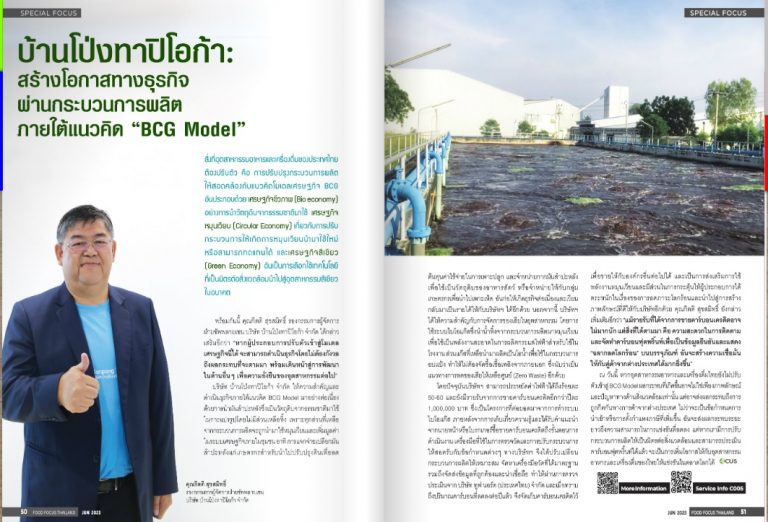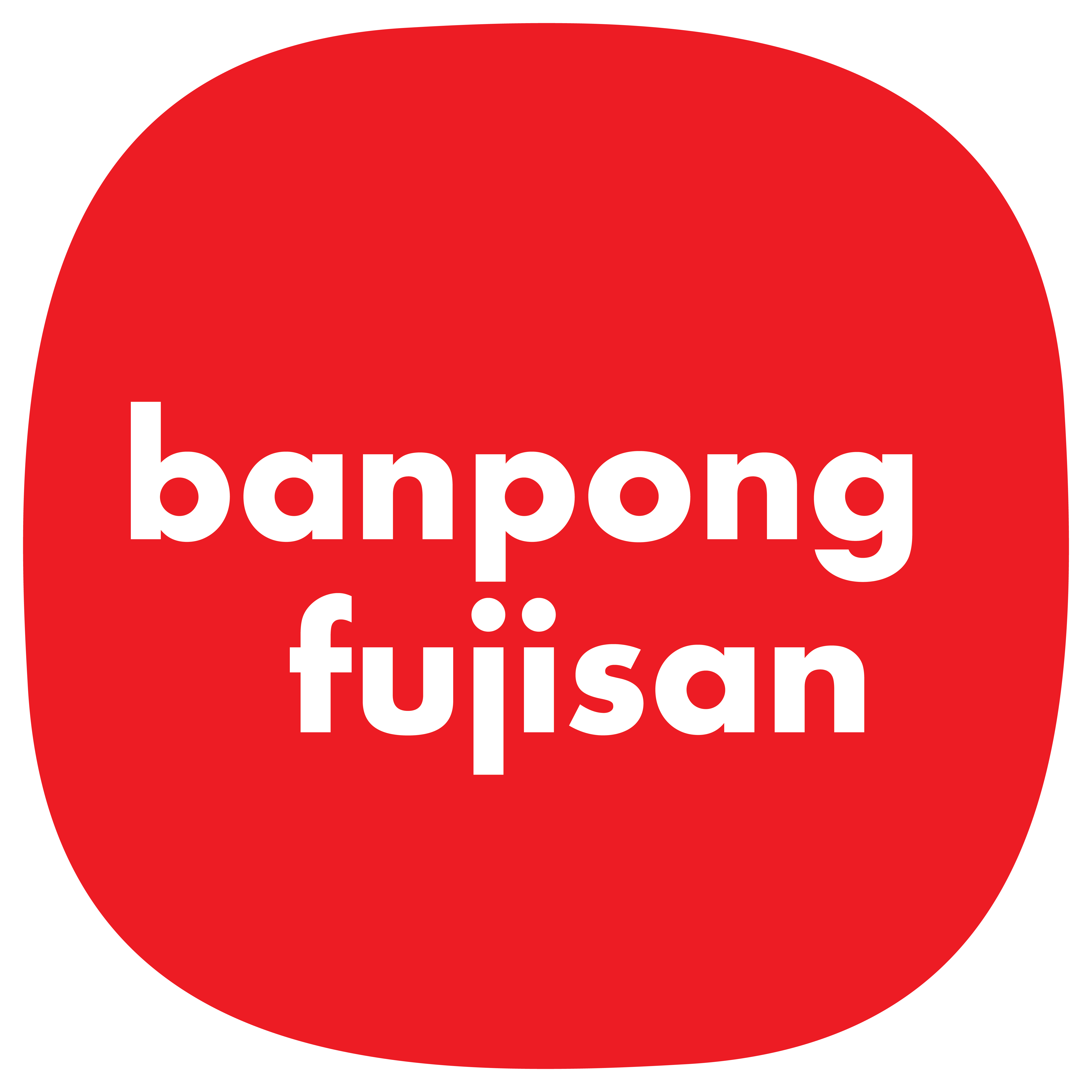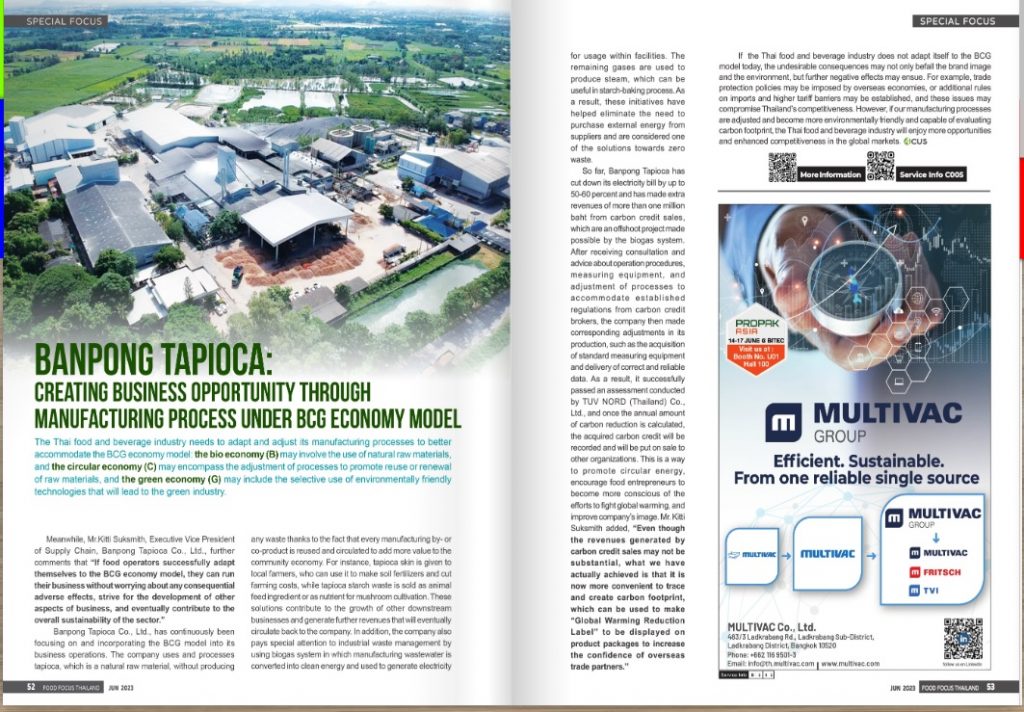
Interviewed by:Editorial Team
Food Focus Thailand Magazine
[email protected]
The Thai food and beverage industry needs to adapt and adjust its manufacturing processes to better accommodate the BCG economy model. Meanwhile, Mr.Kitti Suksmith, Deputy Managing Director of Supply Chain, Banpong Tapioca Co., Ltd., further comments that “If food operators successfully adapt themselves to the BCG economy model, they can run their business without worrying about any consequential adverse effects, strive for the development of other aspects of business, and eventually contribute to the overall sustainability of the sector.”
Banpong Tapioca Co., Ltd., has continuously been focusing on and incorporating the BCG model into its business operations. The company uses and processes tapioca, which is a natural raw material, without producing any waste thanks to the fact that every manufacturing by- or co-product is reused and circulated to add more value to the community economy. In addition, the company also pays special attention to industrial waste management by using biogas system in which manufacturing wastewater is converted into clean energy and used to generate electricity for usage within facilities. The remaining gases are used to produce steam, which can be useful in starch-baking process. As a result, these initiatives have helped eliminate the need to purchase external energy from suppliers and are considered one of the solutions towards zero waste. If the Thai food and beverage industry does not adapt itself to the BCG model today, the undesirable consequences may not only befall the brand image and the environment, but further negative effects may ensue. For example, trade protection policies may be imposed by overseas economies, or additional rules on imports and higher tariff barriers may be established, and these issues may compromise Thailand’s competitiveness. However, if our manufacturing processes are adjusted and become more environmentally friendly and capable of evaluating carbon footprint, the Thai food and beverage industry will enjoy more opportunities and enhanced competitiveness in the global markets.

